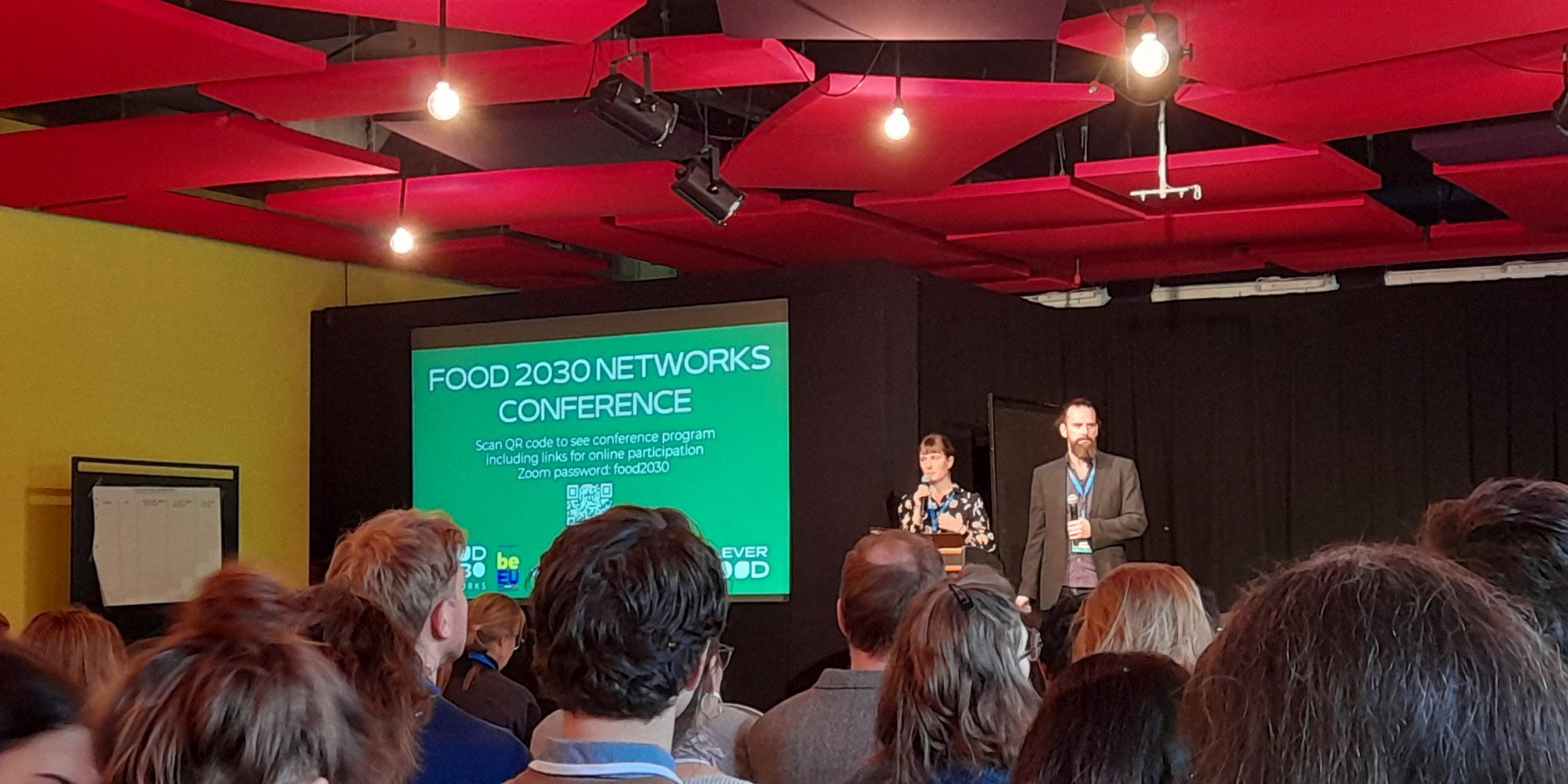The “FOOD 2030 Networks Conference on Transformative Food System Innovation” was organised under the auspices of the Belgian Presidency from 5-7 March 2024 in Brussels in the framework of the CLEVERFOOD project. The organisers invited representatives of international projects on related topics, living labs, innovators, farmers, entrepreneurs, policy makers and investors. AKI as partner of CLEVERFOOD was represented by two colleagues of the Sustainability Research Directorate.
On the first day of the three-day event (5 March) a workshop was organised to facilitate collaboration between projects aiming to transform the food system. Sessions of the workshop covered policy and governance, innovation and digital tools, public engagement and multi-stakeholder collaboration, education and citizen involvement to achieve common goals such as shifting to healthier and more plant-based food production and consumption, strengthening short supply chains, reducing food loss and waste, and ensuring a just transition for farmers, related businesses and consumers.
The Innovators’ Platform, organised on the second day (6 March), brought together Living labs and innovators working on technological, social, governance and market-driven solutions to transform agriculture and food systems in rural and urban areas. Participants discussed the barriers, lock-ins, and the facilitating factors of innovation, as well as the business models, financing, and market opportunities to promote sustainable food economy in breakout sessions.
The final day of the conference (7 March) aimed to build a dialogue with policy makers and stakeholders through round table discussions. In the first panel discussion, participants discussed the opportunities, challenges and barriers that local, national and EU governments need to address to achieve sustainable transformation of food systems and advance transformative innovation. The second panel discussion focused on the current state of the art of environmental labelling of food products (eco-labelling), the opportunities and challenges associated with eco-labelling and the policy responses needed to promote the development and implementation of eco-labels to support the transformation of the European food system.



 HU
HU




